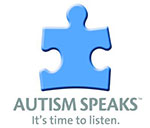 Recognizing that gastrointestinal (GI) dysfunction affects many children and adolescents with autism spectrum disorders (ASD), Autism Speaks, the world’s largest autism science and advocacy organization, today announced a major Suzanne and Bob Wright Trailblazer Award for research into the biological mechanisms of GI disorders in ASD.
Recognizing that gastrointestinal (GI) dysfunction affects many children and adolescents with autism spectrum disorders (ASD), Autism Speaks, the world’s largest autism science and advocacy organization, today announced a major Suzanne and Bob Wright Trailblazer Award for research into the biological mechanisms of GI disorders in ASD.
Paul Ashwood, Ph.D., of the M.I.N.D. Institute of UC Davis, the lead Principal Investigator and his collaborators Alessio Fasano, M.D. at University of Maryland School of Medicine, and Paul Patterson, Ph.D. of the California Institute of Technology will receive $769,943 over a two year period to investigate the underlying biology of GI dysfunction in children with ASD, and in an animal model, test a novel probiotic therapy to restore function of the GI system.
Autism Speaks recently launched its Trailblazer Awards to support highly novel “out of the box” autism-relevant research. “GI problems are a common and distressing concern for many children and adolescents with ASD and their families,” explained Autism Speaks Chief Science Officer Geraldine Dawson, Ph.D. “These conditions are not only a strain on the health of the children affected, GI problems can seriously interfere with their ability to participate in and benefit from activities of daily life, education, and therapeutic activities.”
“This Trailblazer award provides us with a fantastic opportunity to delve deeper to understand the mechanisms that may underlie altered GI function in some children with autism,” stated Paul Ashwood, Ph.D, Principal Investigator. “We will also explore the very exciting possibility that novel therapies could address this GI dysfunction in model systems.”
Autism is behaviorally defined by impairments in communication, social interactions, and repetitive stereotypic behaviors. Many children with ASD also experience GI symptoms such as irregular bowel movements and abdominal pain. Several studies have described altered GI and immune function in children with ASD and GI symptoms. In these children the presence of GI symptoms is often associated with increased irritability, tantrums, aggressive behavior, and sleep disturbance.
For families and children with ASD, access to rigorously studied treatments for medical conditions associated with autism is a major unmet need. Autism Speaks Autism Treatment Network (ATN) provides experts in the care and management of GI problems for children with ASD and engages in clinical research. However, the underlying nature of GI dysfunction in ASD and its relationship to etiology and ASD symptoms are still poorly understood.
This information is critical to developing better and more targeted treatments so both clinical and basic research in this area is needed. To accelerate research and find answers for those who suffer with GI problems and ASD, Autism Speaks issued a special Request for Applications to stimulate research to systematically explore and better understand GI dysfunction in ASD.
This new study brings together innovative and cutting-edge pilot projects that form a new synergistic and coordinated effort. The connections between irregular bowel movements, gut barrier function, gut bacteria, immune function, and abnormal behavior have as yet not been investigated in ASD. This Trailblazer Study will examine these potential links.
“This groundbreaking approach has the potential to provide insights into the pathophysiology of GI dysfunction in ASD that we believe can set the stage for larger scale studies and treatment applications,” explained Autism Speaks Vice President of Clinical Programs, Clara Lajonchere, Ph.D. “We have great hopes for this collaboration because each of the researchers involved is applying his GI expertise to autism research in an unprecedented way.”
Material adapted from Autism Speaks.
No comments yet.